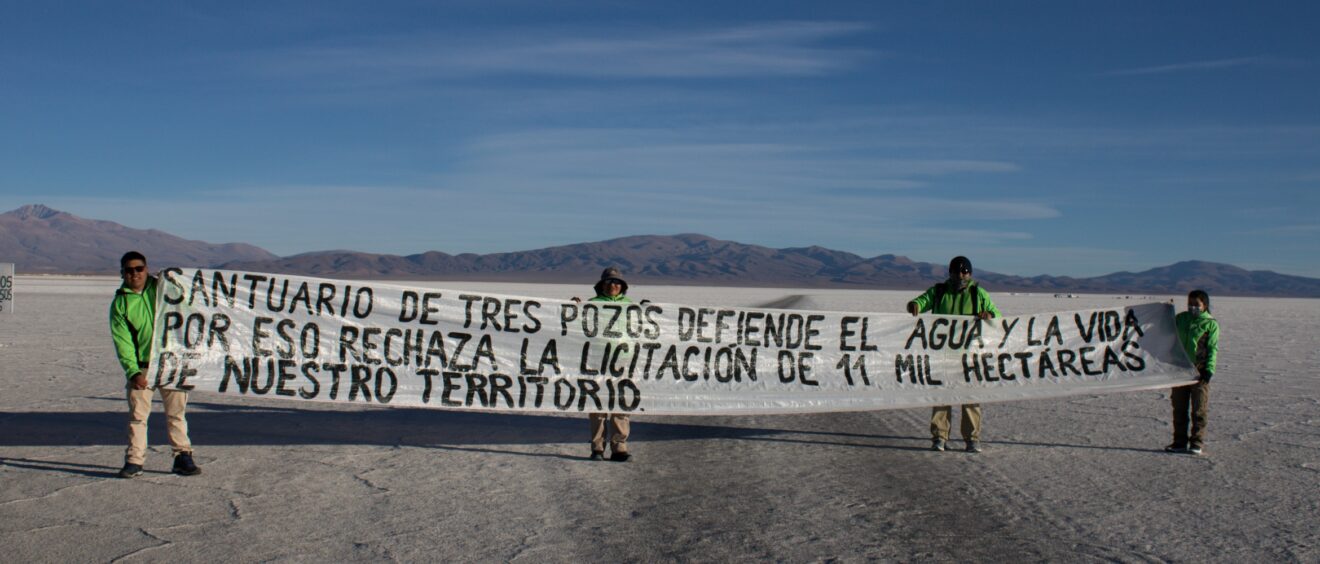
A just and equitable energy transition
Both ENDS has long urged governments to stop supporting fossil fuel projects. In addition to causing climate change, such projects are often linked to severe social and environmental impacts for local communities in the Global South. The success of our efforts – together with climate justice movements worldwide – is finally apparent. Although the pace continues to be too slow, there’s no doubt about it: an energy transition is now underway. At the 2023 UN climate talks, in December, governments heralded the ‘beginning of the end’ of the fossil fuel era. The world is shifting toward an energy system based on renewable sources like wind and solar.
Unfortunately, there’s no guarantee that such a shift will translate to a more just and equitable energy system – a key component of the larger system change we know is needed to ensure that human rights are respected, gender justice is realised, and the environment is nurtured and protected, both now and in the future. In our effort to change the system and realise this vision, Both ENDS focuses particular attention on public financial flows and public institutions, including Export Credit Agencies (ECAs), government-backed agencies that insure domestic businesses against payment risks for projects abroad.
Lithium mining
In 2023, we teamed up with the Latin American network Fundación Ambiente y Recursos Naturales (FARN) to explore the case of lithium mining in Argentina and the role of ECAs. Demand for lithium, a key ingredient in batteries, has skyrocketed in recent years, largely due to the increased production of electric vehicles. Argentina, which is home to some 20 per cent of the world’s lithium deposits, plans to ramp up lithium extraction. More than 40 lithium projects are currently in the pipeline.
The negative impacts of such projects, however, are already clear. Lithium extraction, which is taking place in the valuable and sensitive ecosystems of Argentina’s arid high Andes, consumes enormous amounts of water, posing a major threat to the area’s fragile water systems and water quality. The rights of Indigenous communities, in whose territory the projects are located, are being violated, including their right to access information about the mining projects and to self-determination, enshrined in the United Nations Declaration on the Rights of Indigenous Peoples.
The role of export credit agencies
In the subsequent report, The foreign financiers of Argentina’s lithium rush: Export credit agencies’ support for lithium mining, we made the crucial connection between these issues and public financial support provided through Export Credit Agencies (ECAs). Our research revealed that ECAs from Asia, Europe, and North America are increasingly active in lithium projects in Argentina. Meanwhile, as research for the report was underway, the European Union pushed through in record time a new Critical Raw Materials Act (CRMA), aimed at promoting EU access to lithium and other ‘transition’ metals and minerals used in renewable technology, such as nickel and cobalt. The role of Export Credit Agencies in supporting critical raw materials supply chains abroad was specifically mentioned in the new law, paving the way for more involvement of ECAs in the future.
Drawing on decades of experience with the shortcomings of ECA policies – based on countless cases of human rights and environmental violations in diverse ECA-supported projects – we signalled the alarm. The report called on governments to avoid making the mistakes of the past and, instead, design a new public financial instrument to advance a just and equitable energy transition that respects the rights of local communities and the limits of nature, and builds an energy system that uses a democratic, decentralised, and participatory approach. Among other recommendations in the report, we highlighted the importance of reducing energy and material consumption, starting in the EU, and to fundamentally rethink mobility patterns.
Wisdom, vision and justice
Outreach activities amplified the report’s message. Some 50 participants joined a webinar organised by Both ENDS, in collaboration with Wetlands International Europe and the EU Raw Materials Coalition, on the issue of raw materials extraction in vulnerable areas. FARN shared the case of lithium extraction in Argentina, Bolivia and Chile – which together form the so-called Lithium Triangle – highlighting the problems of water shortages, land dispossession and displacement of Indigenous communities, and the impacts on their livelihoods and food sovereignty.
We also brought these issues to the attention of members of the ECA Watch coalition, many of whom have focused on the issue of fossil fuel divestment. A presentation of the report helped put the threat of an unjust energy transition on the coalition’s agenda. Similarly, an opinion piece in Dutch newspaper NRC, raised awareness among the broader Dutch public about what electric cars mean for Indigenous communities in Argentina, Bolivia and Chile, and made the case for few cars, smaller cars, more shared cars and, above all, more public transport. In response to the article, one NRC reader asked: ‘Why was this alarming message not included in bold letters on the front page? … When the first oil was discovered … and then the car was designed, … people had no idea where it would lead. But now we know better.… I hope for wisdom, vision and… justice.’

Lithium mine in Argentina. Demand for lithium, a key ingredient in batteries, has skyrocketed in recent years. Photo by Susi Maresca on Minga

Lithium extraction, which is taking place in the valuable and sensitive ecosystems of Argentina’s arid high Andes, consumes enormous amounts of water, posing a major threat to the area’s fragile water systems and water quality. Photo by Susi Maresca on Minga
